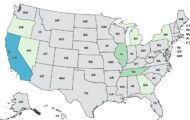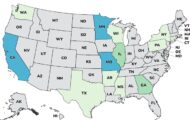According to the Missourian, more than 300 people were sickened with food poisoning from gravy served at a wedding at the Sullivan Eagles Hall on April 5, 2014. Laboratory tests revealed that the bacteria responsible for the illnesses was Clostridium perfringens.
 Symptoms of that illness usually begin 6 to 24 hours after exposure, and include abdominal cramps and diarrhea. Most people recover without complications, but some, especially the elderly and very young, could become dehydrated and need to be hospitalized. And there may be long term complications from this illness. Recent research discovered a possible connection between Clostridium perfringens infections and multiple sclerosis.
Symptoms of that illness usually begin 6 to 24 hours after exposure, and include abdominal cramps and diarrhea. Most people recover without complications, but some, especially the elderly and very young, could become dehydrated and need to be hospitalized. And there may be long term complications from this illness. Recent research discovered a possible connection between Clostridium perfringens infections and multiple sclerosis.
About 100 people told public health officials they were ill, and said they knew of others who also got sick. About 750 people attended the event.
The problem occurred when the gravy was not cooled quickly enough. If perishable foods such as gravies and sauces are not cooled quickly and remain in the danger zone of 40°F and 140°F too long, pathogenic bacteria can easily grow and produce toxins. Clostrium perfringens spores will survive the cooking process but aren’t harmful until they grow. That happens at those low temperatures when food is improperly held.
The catering facility has been inspected. Public health officials talked to the caterer about proper cooking, cooling, and food handling processes. The name of the caterer is not released because officials think this knowledge could harm the business, despite any risk to public health.





You really need to proof read better. Also you should know that C. perfringens is one of the most common types of food poisoning. Millions of people have had it and don’t even know it. Also, you could inspect a caterer everyday and the risk of improper cooling will be the same as if they were never inspected.
No, you need to read and comprehend better. C. perfringens SPORES aren’t harmful. But when the spores grow when food is held at improper temperature, they produce TOXINS that make people sick. That is what it says in the article. And a caterer should know that holding food at temps between 40 and 140°F is dangerous.